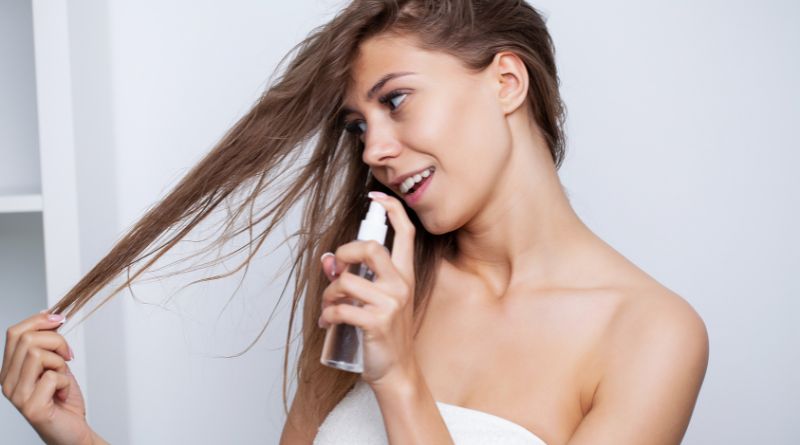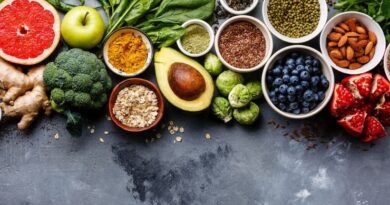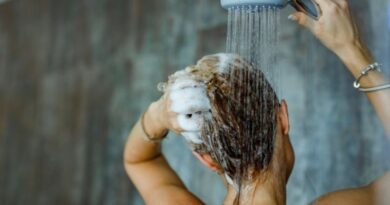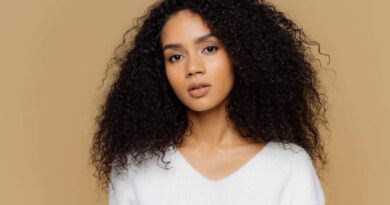Welcome to a transformative journey where the secret to luscious locks lies within—our blog, “Vitamins and Supplements for Optimal Hair Growth: Nourish Your Locks from Within.” In this exploration, we unravel the mysteries of essential nutrients, unveiling their roles in promoting robust and vibrant hair growth. From understanding the intricacies of the hair growth cycle to delving into the power-packed world of vitamins, minerals, and herbal supplements, this guide empowers you to nurture your hair from the inside out.
Join us as we navigate the pathways of nourishment, offering insights, tips, and expert advice to help you unlock the full potential of your hair. Get ready to embark on a holistic journey towards healthier, more radiant locks—because true beauty starts with the nutrients that fuel it.
Essential Vitamins for Hair Growth
Here are the key players in the journey to lush locks with our blog on Essential Vitamins for Hair Growth. From Vitamin A’s scalp-nourishing prowess to the B-complex team supporting cell division, unlock the secrets to healthier and more vibrant hair through targeted nutritional insights.
1. Biotin (Vitamin B7)
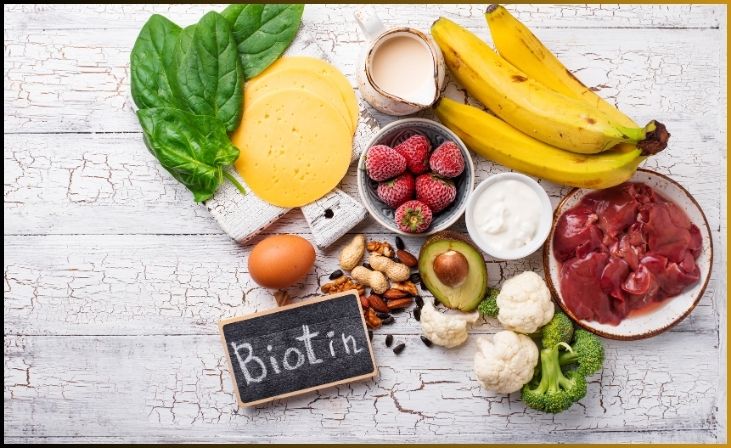
Biotin, also known as Vitamin B7 or Vitamin H, is a water-soluble B-vitamin crucial for maintaining healthy hair, skin, and nails. This essential nutrient plays a pivotal role in the production of keratin, a protein that forms the structural foundation of hair. Biotin supports hair growth by promoting cell proliferation and aiding in the metabolism of amino acids, the building blocks of proteins.
While biotin deficiency is rare, supplementing with Biotin is a popular choice for those looking to address hair thinning or brittleness. Found in various foods like eggs, nuts, and leafy greens, Biotin supplements are accessible and can contribute to overall hair health when incorporated into a well-balanced diet. It’s important to consult with a healthcare professional to determine appropriate dosage and address specific concerns related to hair health.
For More- 10 Best Benefits of Using Bananas for Hair Care
2. Vitamin D

Vitamin D, often referred to as the “sunshine vitamin,” is a fat-soluble vitamin crucial for various bodily functions, including optimal hair health. Synthesized in the skin in response to sunlight exposure, Vitamin D plays a vital role in supporting the hair follicle’s activation and the production of new hair. It contributes to the regulation of hair growth cycles and helps prevent hair shedding.
In addition to sunlight, Vitamin D can be obtained through certain foods such as fatty fish, fortified dairy products, and supplements. Adequate Vitamin D levels are essential for maintaining a healthy scalp and ensuring the conditions for robust and vibrant hair growth. Individuals experiencing hair-related concerns should consider consulting with a healthcare professional to assess their Vitamin D status and explore supplementation options if necessary.
3. Vitamin E

Vitamin E, a fat-soluble antioxidant, plays a crucial role in maintaining healthy hair and promoting overall well-being. Known for its protective properties against oxidative stress, Vitamin E contributes to a nourished scalp by improving blood circulation. This enhanced blood flow supports the hair follicles, promoting their health and stimulating hair growth. Additionally, Vitamin E helps prevent oxidative damage to the hair cells, reducing the risk of hair breakage and split ends. Found in various foods such as nuts, seeds, and leafy greens, Vitamin E can also be obtained through supplements.
Incorporating Vitamin E into your diet or routine can contribute to stronger, shinier hair and a scalp environment conducive to optimal hair growth. As with any supplement, it’s advisable to consult with a healthcare professional to determine individual needs and ensure safe and effective usage.
4. Vitamin A

Vitamin A, a fat-soluble nutrient, plays a vital role in maintaining healthy hair and promoting optimal scalp conditions. Known for its contribution to sebum production, a natural oil that moisturizes the scalp, Vitamin A helps prevent dryness and flakiness, fostering an environment conducive to hair growth. Additionally, Vitamin A supports the development of keratin, a protein essential for strong and resilient hair. Found in a variety of foods such as carrots, sweet potatoes, and leafy greens, Vitamin A is also available in supplement form.
However, it’s crucial to maintain a balance, as excessive Vitamin A intake can lead to toxicity. Ensuring an adequate but not excessive intake of Vitamin A supports both overall health and the vitality of your hair. Consulting with a healthcare professional can provide personalized guidance on incorporating Vitamin A into your diet or supplementation routine.
5. Iron

Iron, an essential mineral, plays a pivotal role in maintaining healthy hair growth and preventing hair loss. As a key component of hemoglobin, the protein responsible for transporting oxygen in the blood, iron ensures that hair follicles receive an adequate oxygen supply. This oxygenation is crucial for the metabolic processes involved in hair cell growth and repair.
Iron deficiency, known as anemia, has been linked to hair thinning and shedding. Incorporating iron-rich foods like lean meats, beans, and spinach into your diet, or considering iron supplements under the guidance of a healthcare professional, can help address deficiencies and promote a thriving environment for strong, resilient hair. Striking the right balance is essential, as excessive iron intake can have adverse effects. Regular monitoring of iron levels and consultation with a healthcare provider can guide optimal iron supplementation for maintaining vibrant and healthy hair.
6. Zinc

Zinc, a vital trace element, plays a crucial role in supporting healthy hair growth and overall scalp health. As an essential component in numerous enzymatic reactions, zinc contributes to cell division, a process integral to the growth and renewal of hair follicles. Additionally, zinc aids in the function of oil glands surrounding hair follicles, preventing the scalp from becoming excessively dry or oily. This balance is essential for creating an optimal environment for hair growth. Zinc deficiency has been associated with hair loss, making it important to ensure an adequate intake through dietary sources such as meat, nuts, and seeds, or through zinc supplements when recommended by a healthcare professional. Striking the right balance of zinc in your diet promotes not only robust hair growth but also the overall health of your scalp.
7. Omega-3 Fatty Acids

Omega-3 fatty acids, essential polyunsaturated fats, are integral to maintaining healthy hair and a nourished scalp. These fatty acids, primarily found in fatty fish like salmon, walnuts, and flaxseeds, contribute to hair health through their anti-inflammatory properties. Omega-3s support a hydrated scalp, reducing the risk of dryness and flakiness, and promote overall blood circulation to the hair follicles.
Moreover, these fatty acids play a role in the structural integrity of hair cell membranes, contributing to stronger, more resilient strands. While omega-3s can be obtained through a well-balanced diet, supplementation is also an option. Including these essential fatty acids in your nutritional regimen fosters an environment conducive to optimal hair growth, ensuring that your locks shine with vitality and health from the inside out.
Also Read- Can you dye wet hair with permanent hair dye?
Conclusion
In the pursuit of luxurious and vibrant hair, the journey begins from within. Our guide, “Vitamins and Supplements for Optimal Hair Growth: Nourish Your Locks from Within,” has navigated the intricate pathways of essential nutrients, unlocking the secrets to nurturing healthy and robust hair. From Vitamin A’s scalp-nourishing prowess to Omega-3’s structural support, each nutrient plays a crucial role in fostering an environment conducive to optimal hair growth. Remember, achieving luscious locks is a holistic endeavor—balancing a nutrient-rich diet, proper hydration, and targeted supplements ensures a comprehensive approach to hair wellness. Empower yourself with knowledge, consult with healthcare professionals, and embark on a personalized journey towards a crown of vibrant, nourished, and flourishing locks.
FAQs
Vitamin A promotes sebum production, preventing scalp dryness and supporting the development of the protein keratin for strong and resilient hair.
Omega-3 fatty acids reduce inflammation, hydrate the scalp, and play a vital role in the structural integrity of hair cell membranes, promoting stronger strands.
Supplements complement a balanced diet but should not replace it. A diverse range of nutrients from whole foods ensures comprehensive hair nourishment.
Zinc supports cell division, essential for hair follicle growth, and regulates oil glands to maintain scalp health, reducing the risk of hair loss.

